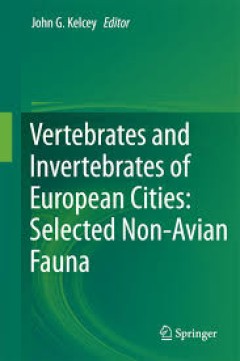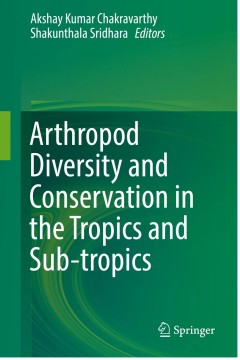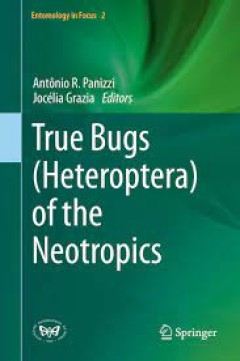Filter by

Vertebrates and Invertebrates of European Cities:Selected Non-Avian Fauna
Vertebrates and Invertebrates of European Cities: Selected Non-Avian Fauna is the first known account of the vertebrate and invertebrate fauna of several cities in Europe and throughout the rest of the world. It excludes birds, which are described in a companion volume. The book contains eleven chapters about nine cities distributed throughout Europe. The chapters start with the history of the …
- Edition
- -
- ISBN/ISSN
- 978-1-4939-1698-6
- Collation
- -
- Series Title
- -
- Call Number
- -

Arthropod Diversity and Conservation in the Tropics and Sub-tropics
Arthropods are invertebrates that constitute over 90% of the animal kingdom, and their bio-ecology is closely linked with global functioning and survival. Arthropods play an important role in maintaining the health of ecosystems, provide livelihoods and nutrition to human communities, and are important indicators of environmental change. Yet the population trends of several arthropods specie…
- Edition
- Ed. 1
- ISBN/ISSN
- 978-981-10-1518-2
- Collation
- XXIV, 435
- Series Title
- -
- Call Number
- 304.2 ART a

True Bugs (Heteroptera) of the Neotropics
True bugs (Heteroptera) are a diverse and complex group of plant-feeding and predatory insects important to food production, human health, the global economy and the environment. Within the nearly 43,000 species described around the world, Neotropical true bugs are particularly diverse, and much remains to be discovered about their biology and relations with other species. Inspired by the need…
- Edition
- -
- ISBN/ISSN
- 978-94-017-9861-7
- Collation
- -
- Series Title
- -
- Call Number
- -
 Computer Science, Information & General Works
Computer Science, Information & General Works  Philosophy & Psychology
Philosophy & Psychology  Religion
Religion  Social Sciences
Social Sciences  Language
Language  Pure Science
Pure Science  Applied Sciences
Applied Sciences  Art & Recreation
Art & Recreation  Literature
Literature  History & Geography
History & Geography